Results
-
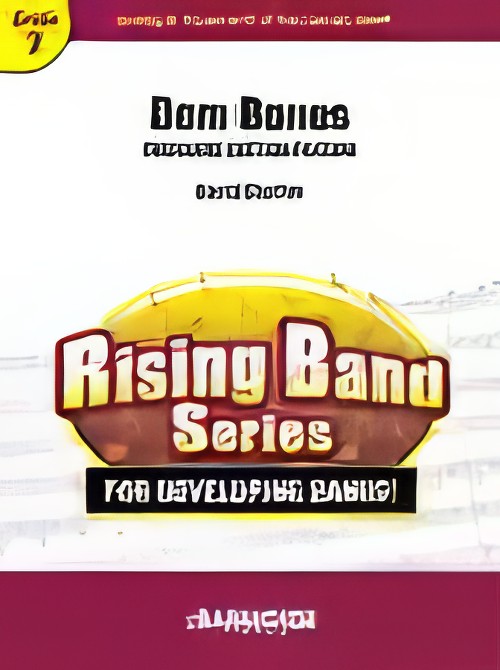 £49.00
£49.00Dem Bones (Trombone Section Feature with Concert Band - Score and Parts) - Shaffer, David
If you got the "Bones," then let 'em have some fun! This trombone feature will showcase those slidin' bones, and let everyone have some fun in the process. Punctuated by clever percussion sound effects, the entire band will enjoy as the piece gets faster....and faster....and faster! This will be the hit of your concert, and "Dem Bones" will love it! Duration: 1.45
Estimated dispatch 7-14 working days
-
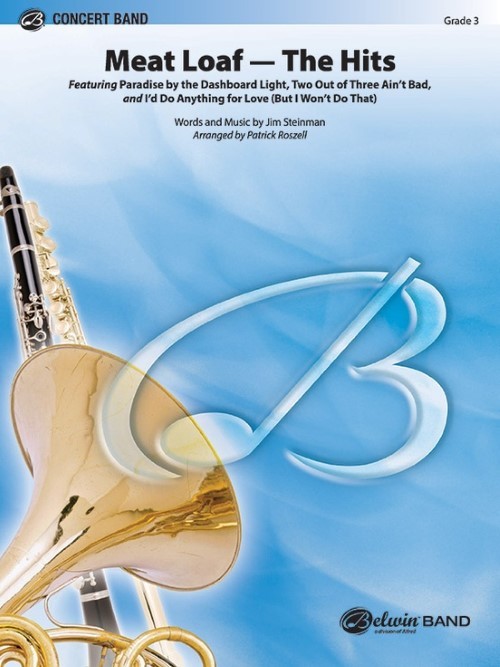 £77.00
£77.00Meat Loaf - The Hits (Concert Band - Score and Parts) - Steinman, Jim - Roszell, Patrick
He's big and over the top in his music and his performances. Three memorable hits written by Meat Loaf's longstanding songwriter Jim Steinman including, "Paradise by the Dashboard Light," "Two Out of Three Ain't Bad," and "I'd Do Anything For Love But I Won't Do That," compose this feel-good medley. Like his performances, go big and over the top, but be sure to have fun!Duration: 6:00
Estimated dispatch 7-14 working days
-
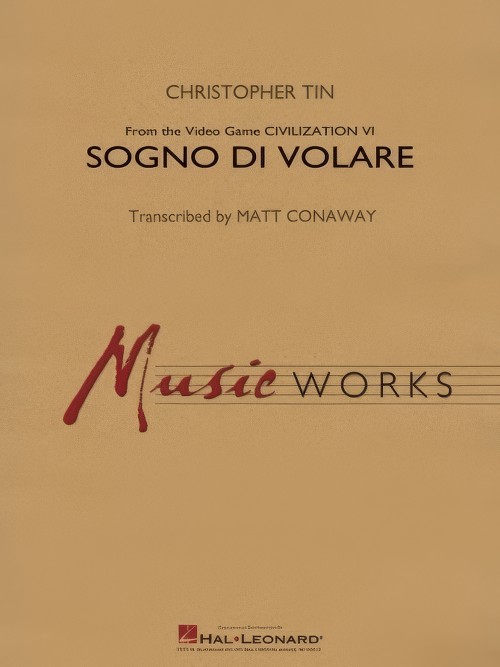 £79.99
£79.99Sogno di Volare (from Civilization VI) (Concert Band - Score and Parts) - Tin, Christopher - Conaway, Matt
From the popular and long-standing "Civilization" video game franchise, Sogne di Volare is the stirring and popular theme from Civilization VI. This powerful adaptation is taken directly from the original version and is compatible with the composer's own arrangement for choir. Whether performed with band alone or with the addition of voices, this is a stunningly beautiful concert work portraying a sense of conquest and wonder. Duration: 4:00
Estimated dispatch 7-14 working days
-
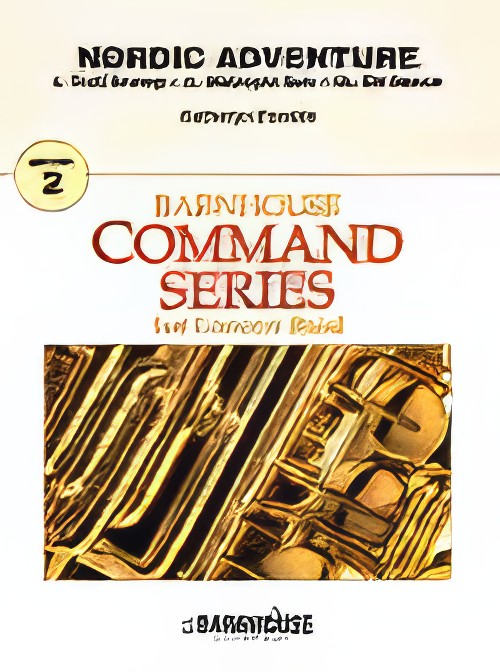 £59.00
£59.00Nordic Adventure (Concert Band - Score and Parts) - Fenske, Katheryn
The thrilling world of the Scandinavian far North comes to life as your band performs "Nordic Adventure!" The journey begins with a "Troll Stomp" where low instruments shine, and musical surprises emerge as mythical giants romp through the forest. The chorale-like second movement, "Midnight Sun," uses a variety of textures and sounds to transport your audience to the icy tranquility of Nordic summer. In the final movement, "Elf Dance," the energetic and witty nature of these tiny, mischievous Nordic creatures can be heard as the piece builds to a rousing finish. Your developing players, and the audience as well, will be delighted by this excursion into the frozen land of trolls and elves! Duration: 4.15
Estimated dispatch 7-14 working days
-
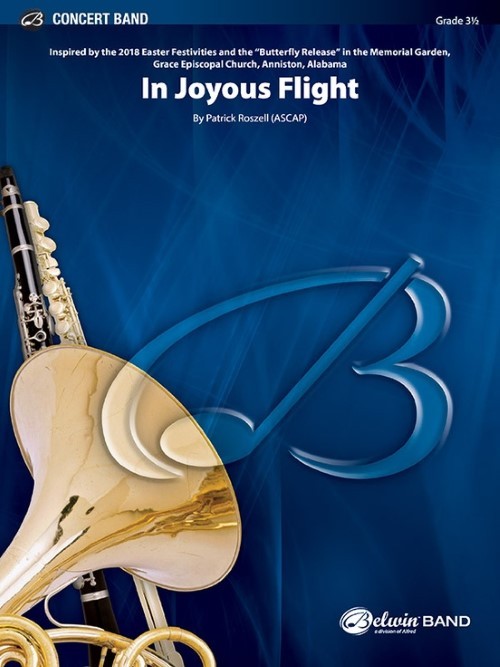 £70.50
£70.50In Joyous Flight (Concert Band - Score and Parts) - Roszell, Patrick
Musically depicting a butterfly release, this exciting work evokes the flourish of colour and hope. A bold and dramatic piece suitable for concerts and contests throughout the school year. The piece serves beautifully as an opener or closer on concerts and contests throughout the school year. A bold and dramatic addition to the literature.Duration: 4:30
Estimated dispatch 7-14 working days
-
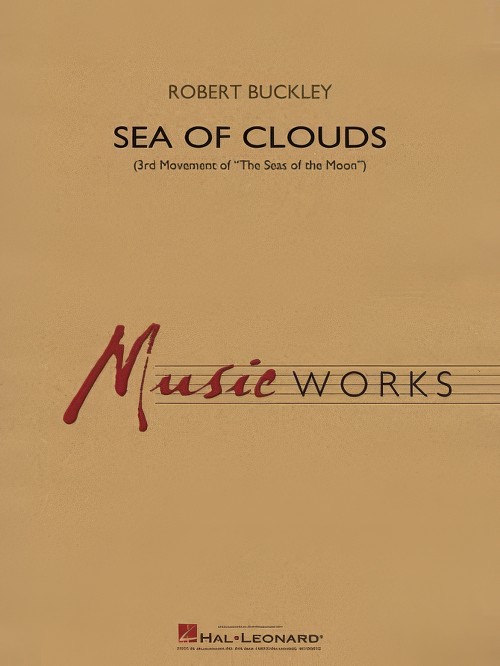 £72.99
£72.99Sea of Clouds (Concert Band - Score and Parts) - Buckley, Robert
3rd Movement of The Seas of the Moon. The third movement of Robert Buckley's grandly cinematic suite describing impressions of the "seas" of the moon, Sea of Clouds was inspired by a series of paintings done by Claude Monet in the London fog. Monet captured the gradations of light as it was affected by fog with ghostly images sifting through. This movement is mostly subdued and dreamlike, the music ebbing and flowing and eventually building to a vast wall of sound and then dissolving into silence. Duration: 5:00
Estimated dispatch 7-14 working days
-
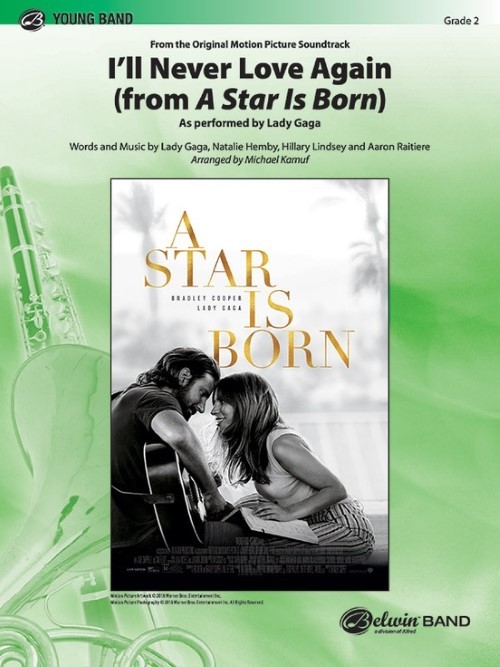 £67.00
£67.00I'll Never Love Again (from A Star is Born) (Concert Band - Score and Parts) - Kamuf, Michael
From the blockbuster movie A Star Is Born and performed by Lady Gaga, this remarkable power ballad has been given an expressive yet dramatic setting for young band. Optional piano, bass, and drumset parts will add varying and authentic textures. Destined to become a favourite selection for students and audiences alike.Duration: 4.15
Estimated dispatch 7-14 working days
-
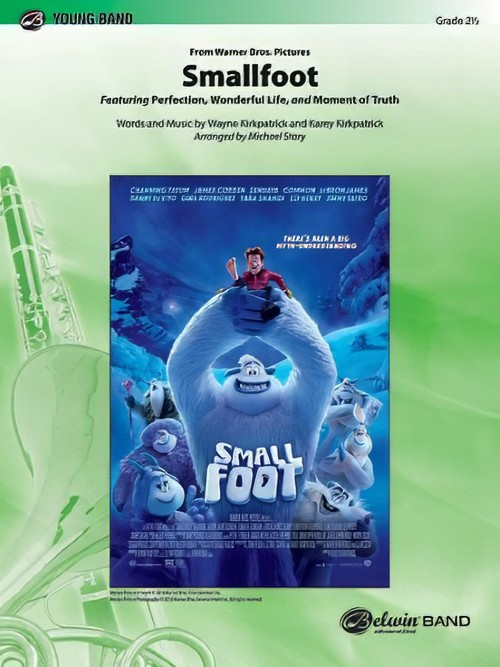 £67.00
£67.00Smallfoot (Concert Band - Score and Parts) - Kirkpatrick & Kirkpatrick - Story, Michael
This delightful through-played medley from the Warner Bros. Pictures 2018 animated film includes Wayne and Karey Kirkpatrick's "Perfection," "Wonderful Life," and "Moment of Truth." The upbeat tunes will be well received by students and audiences alike. Suitable for any concert but, with its hopeful message, particularly for recruiting and spring events.Duration: 4:15
Estimated dispatch 7-14 working days
-
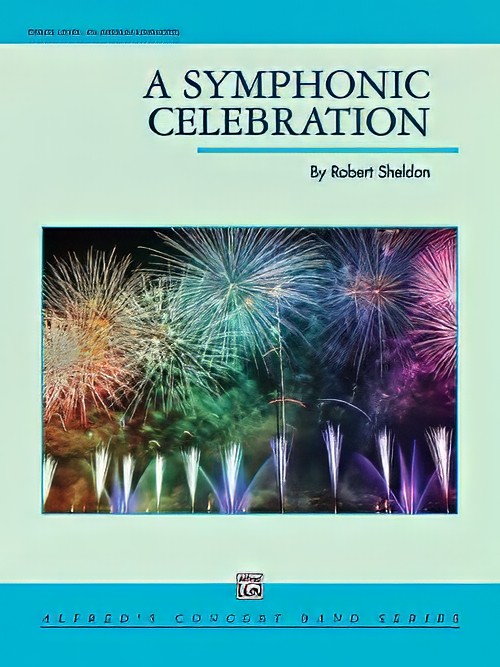 £87.50
£87.50A Symphonic Celebration (Concert Band - Score and Parts) - Sheldon, Robert
This energetic and uplifting piece features tuneful melodies and playful rhythms in various meters. Colourful orchestration and moments of lyricism add to the variety of styles and textures, providing a joyful showcase for advanced ensembles.Duration: 6.00
Estimated dispatch 7-14 working days
-
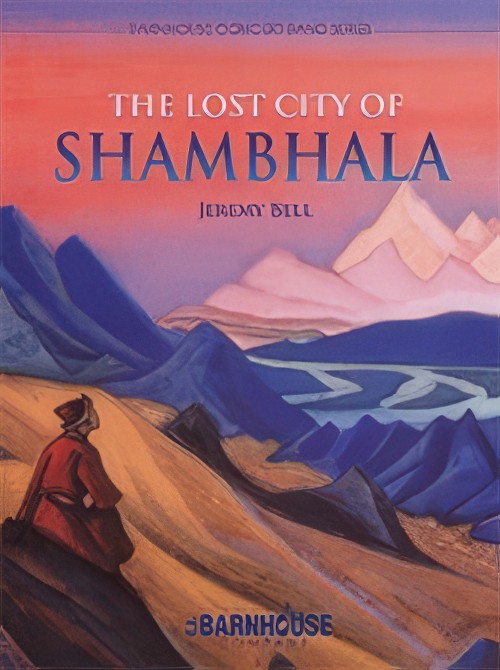 £79.00
£79.00The Lost City of Shambhala (Concert Band - Score and Parts) - Bell, Jeremy
The Lost City of Shambhala takes the listener on a journey to the discovery of the mythical utopia, nested in the Himalayas. In Sanskrit, Shambhala means "place of peace," and the music paints an Eden-esque landscape shrouded in mystery. But it is soon discovered that entry into the city is well-guarded and met with hostility as the music shifts to a heavily percussive, driving thrill-ride of shifting 7/8 and 4/4 time signatures. An exciting and energetic work that makes a fantastic addition to any program! Duration: 5.00
Estimated dispatch 7-14 working days
